CONGRESS ON SUSTAINING NATURAL RESOURCES AND CONSERVATION SCIENCE: WHAT IS AT STAKE IN THE YEARS AHEAD
December 13-14, 2012
Washington, DC
Pressures to significantly reduce federal expenditures have resulted from concerns about the growing national debt and a prolonged sluggish economy. Anticipated budget cuts could have far-reaching impacts on the environment. Professionals and scientists who have knowledge about conservation science, natural resources management, and environmental protection have an opportunity to inform this process by sharing their expertise.
Federal programs and activities have longstanding records of benefiting the integrity of America's terrestrial and aquatic ecosystems, the quality of air and water, built infrastructure that allows us to manage and conserve essential water resources, and scientific research. Thus, it is in this context that RNRF and its member organizations sponsored an interdisciplinary dialog to assess program choices. Participants from government, industry, the NGO community, and academia were invited to participate.
The primary goal of the meeting was to identify essential programs and activities that support the management and use of land resources, coastal and ocean resources, inland water resources, and atmospheric resources. Congress participants also identified the risk-of-loss associated with diminished financial support.
The congress was held at the American Geophysical Union Conference Facility at 2000 Florida Ave NW in Washington, DC.
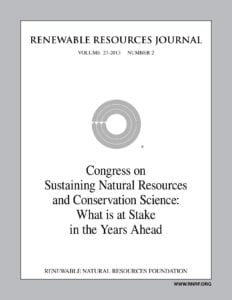 Congress Report
Congress Report
Summaries of presentations, findings, and recommendations of participants have been incorporated in a special edition of the Renewable Resources Journal, Volume 27 Number 2, published in April 2013. The congress report was additionally distributed to members of congress as a white paper prior to publication. The congress report is available for download via the links at the top of the page or by clicking the image to the right.
Congressional Forum
On May 16, 2013, RNRF hosted a congressional forum in the Capitol Building as a follow-up activity related to the congress. RNRF Chair Howard Rosen opened the forum with an overview of current funding challenges at federal science and natural resources management agencies. Following his remarks, those in attendance discussed the effects of diminished funding on these agencies, as well as the long-term impacts that will result from today’s reduced monetary and program capacity. While some sequester impacts are readily quantified (airport delays, unfulfilled training, social services suspended), the consequences of discoveries not made, missed meetings, lost expertise, and potential scientists lost are much more difficult to describe and quantify. These losses are expected to have significant impacts on our nation’s science and management capacity in the years ahead.
Attendees received a complimentary copy of RNRF’s 2012 congress report. They also received a compilation of recent letters and testimony by federal science and environmental management agencies. These documents identify the plans, anticipated impacts, and adopted measures by these agencies in the context of the sequester.
SPEAKERS
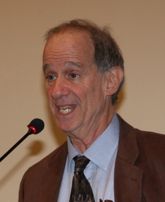
RNRF Chairman
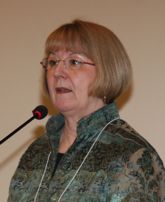
American Geophysical Union

U.S. Fish and Wildlife Service
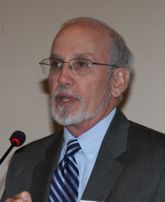
The Nature Conservancy
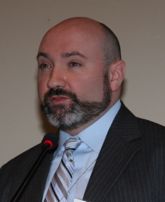
AAAS

U.S. Department of Agriculture

NOAA
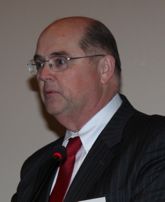
The Cadmus Group, Inc.

NOAA
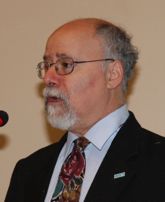
National Council for Science and the Environment
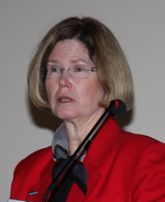
Delaware Basin River Commission

RNRF Executive Director
PROGRAM
December 13, 2012
8:30 a.m. – 9:00 a.m.
Registration and Continental Breakfast
9:00 a.m. – 9:05 a.m.
Welcome and Opening Remarks
Howard Rosen, RNRF Chairman
Former President, Society of Wood Science and Technology
Bethesda, MD
9:05 a.m. – 9:10 a.m.
Congress Context and Goals
Ann Cairns, Chair, RNRF Congress Program Committee
Director, Strategic Communications & Outreach, American Geophysical Union
Washington, DC
9:10 a.m. – 9:40 a.m.
U.S.’s Historic Leadership Role in Conservation Management and Science
(An overview of America’s leadership in conservation, management and science, especially with regard to the federal government’s role.)
Mark Madison, Historian, U.S. Fish and Wildlife Service
Shepherdstown, WV
[PDF Presentation] [Text Remarks]
9:40 a.m. – 10:10 a.m.
Discussion/Questions
10:10 a.m. – 10:25 a.m.
Break
10:25 a.m. – 10:45 a.m.
Overview of Public Support for Natural Resources Management and Protection
Robert Bendick, Director of U.S. Government Relations, The Nature Conservancy
Arlington, VA
[PDF Presentation] [Public Opinion Survey] [Additional Resource]
10:45 a.m. – 10:55 a.m.
Discussion/Questions
10:55 a.m. – 11:25 a.m.
Overview of Funding of Conservation Management and Science
(Historic trends of investments in conservation and science over the past decade, the current funding situation and prospects, and funding options.)
Matt Hourihan, Director of R&D Budget and Policy Program, American Association for the Advancement of Science
Washington, DC
[PDF Presentation]
11:25 a.m. – 11:55 p.m.
Discussion/Questions
11:55 a.m. – 12:40 p.m.
Lunch
12:40 p.m. – 4:55 p.m.
Describe significant federal contributions to natural resources management and science. What are the risks-of-loss associated with diminished financial support?
12:40 p.m. – 1:10 p.m.
Land Resources
Ann Bartuska, USDA Deputy Under Secretary for Research, Education & Economics
Washington, DC
[PDF Presentation]
1:10 p.m. – 1:40 p.m.
Discussion/Questions
1:40 p.m. – 2:10 p.m.
Atmospheric Resources
Thomas Karl, Director, National Climatic Data Center, National Oceanic and Atmospheric Administration
Asheville, NC
[PDF Presentation]
2:10 p.m. – 2:40 p.m.
Discussion/Questions
2:40 p.m. – 2:55 p.m.
Break
2:55 p.m. – 3:25 p.m.
Inland Water Resources
Environmental Management in Economic Hard Times
Tracy Mehan, Principal, Drinking Water and Water Quality Group, The Cadmus Group Inc.
Former EPA Assistant Administrator for Water appointed by George W. Bush (2001-2003)
Arlington, VA
[Text Remarks]
3:25 p.m. – 3:55 p.m.
Discussion/Questions
3:55 p.m. – 4:25 p.m.
Coastal and Ocean Resources
Margaret Davidson, Acting Director, Office of Ocean and Coastal Resource Management, National Oceanic and Atmospheric Administration
Charleston, SC and Silver Spring, MD
[Talking Points] [Additional Resource]
4:25 p.m. – 4:55 p.m.
Discussion/Questions
December 14, 2012
8:30 a.m. – 9:00 a.m.
Continental Breakfast
9:00 a.m. – 9:30 a.m.
Research Funding at Universities
David Blockstein, Executive Secretary, Council of Environmental Deans and Directors, and Senior Scientist, National Council for Science and the Environment
Washington, DC
[PDF Presentation]
9:30 a.m. – 10:00 a.m.
Discussion/Questions
10:00 a.m. – 10:15 a.m.
Break
10:15 a.m. – 10:45 a.m.
Case study about how the Delaware River Basin Commission has been coping in these financially challenging times
Carol R. Collier, Executive Director, Delaware River Basin Commission
West Trenton, NJ
[PDF Presentation] [Additional Resource]
10:45 a.m. – 11:15 a.m.
Discussion/Questions
11:15 a.m. – 12:15 p.m.
Congress Wrap Up and Discussion
Robert Day, RNRF Executive Director
Bethesda, MD
FURTHER READING
American Geosciences Institute has prepared a document discussing "Estimated Impacts of Sequestration and Tools for Advocacy," dated December 5, 2012. The document is available online.
The American Institute of Biological Sciences (AIBS) has published a short video online to explain implications of the fiscal cliff for science. The video is available online. A report by the AIBS Public Policy Office titled "The Fiscal Cliff: Implications of the Federal Budget Sequestration for Scientific Research," dated September 19, 2012 is available here.
The National Ground Water Association has prepared a White Paper on Groundwater Sustainability. The document is available here.
The Center for American Progress has developed a report titled "7 Ways that Looming Budget Cuts to Public Lands and Oceans Will Affect All Americans," dated December 2012 and available here.
The Wilderness Society has prepared a fact sheet which discusses projected impacts of the budgetary sequester on environmental programs. The final two pages of the document discuss the economic importance of these programs with links to relevant studies and supporting data.
On December 19, 2012, the USGS Coalition sent a letter to President Obama and congressional leaders concerning the impact of sequestration on USGS. The letter calls for a balanced approach to deficit reduction that does not include further cuts to non-defense discretionary programs. The letter can be read here.
On June 3, 2013, the National Institutes of Health published a fact sheet on the "Impact of Sequestration on the National Institutes of Health." The fact sheet is available here.
